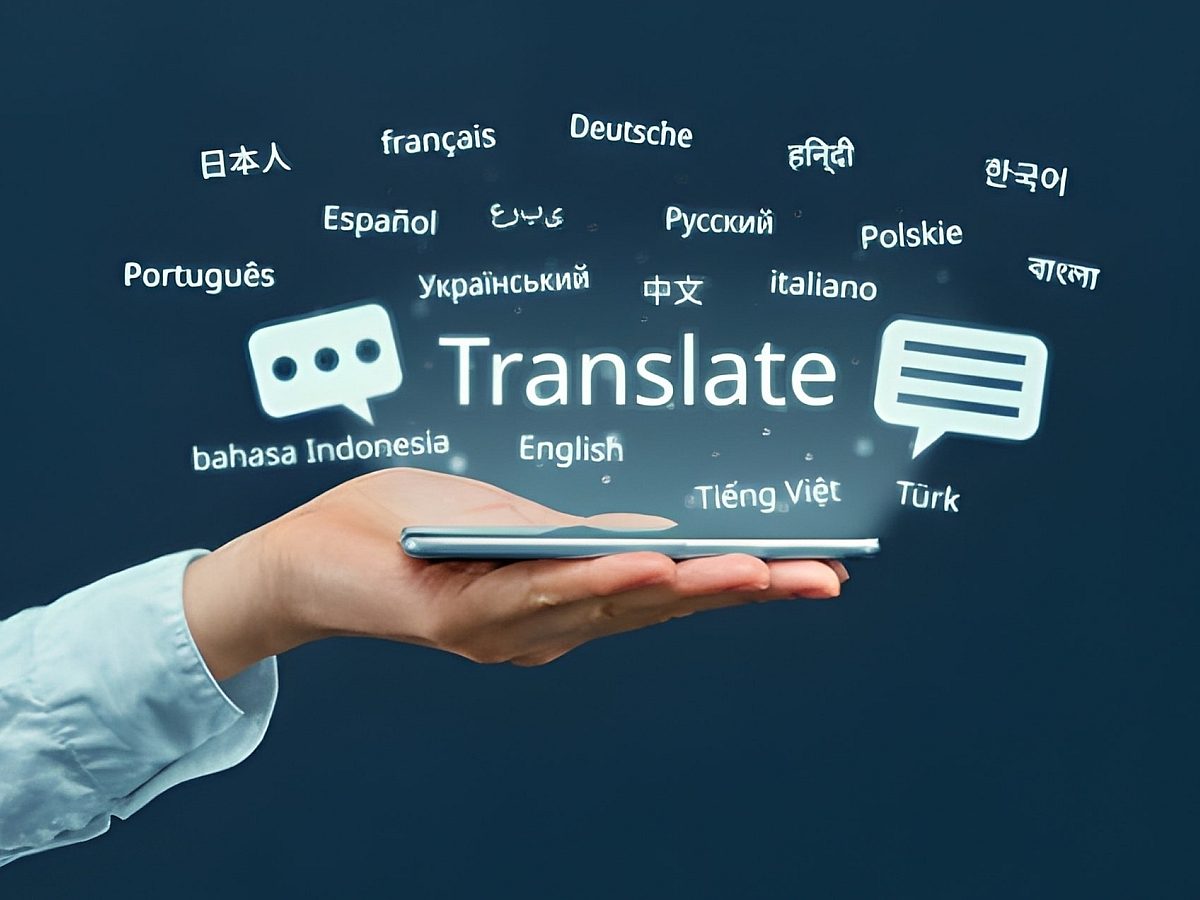Your brand has been successful in your home country, and now you’re ready to go global.
Your marketing materials were successful at home, so why not just hit the copy/paste button and do it all over again?
Unfortunately, it’s not that simple. Similar markets around the globe require very different marketing strategies. This is why marketing localization is so important.
Localization is the process of adapting your content to better engage local consumers. It takes into account local cultural sensitivities, language, differing forms of measurement (e.g. miles vs kilometers), and much more to ensure your audience understands your message as you intend.
Localization personalizes your content to make it more engaging, which means it’s a huge boon to ROI. A study on iPhone apps found that localization boosted downloads by nearly 130% in less than a week.
And in a survey of global businesses, 84% reported a moderate or significant increase in profits after localizing their content.
However, you’ve got to localize wisely. Localization is part of marketing, which means it involves research and careful execution. Poor localization may result in cultural blunders that are difficult to recover from.
For example, Dolce & Gabbana launched a series of ads in China featuring a Chinese model who didn’t understand how to eat Western food items with chopsticks. The ads were seen as racist by Chinese consumers, and the backlash was catastrophic. D&G was abandoned by its brand ambassadors and condemned by hundreds of Chinese celebrities. In the coming years, it was forced to close 11 of its 58 retail locations in China, and its market shrank significantly in the region.
That’s not the only localization horror story. But these situations can be easily avoided if localization remains a priority for your marketing team.
Follow the tips below to plan and execute a winning marketing localization strategy.
Top Ten Tips for Effective Marketing Localization
Wolfestone Group has spent the past two decades managing localization campaigns to catalyze our clients’ global growth.
The following tips were submitted by Wolfestone Group project managers who have worked with brands like JP Morgan, Google and Coca-Cola.
1. Market Research is the Foundation of Localization
You can translate your marketing materials into another language without any research. But localization requires knowledge of your market.
Market research is the detective work you do to locate your potential customers in a new region. It’s a bit like getting to know your customers before selling to them. It helps you understand their problems and how your product can offer solutions.
This is also an important phase for localization. It’s the time when you can gather data on cultural preferences, language nuances and regional trends. Understanding these aspects allows you to tailor your messaging to resonate with the local audience.
For example, a US-based coffee company looking to expand into France might discover that local consumers value sustainability over cost. With this knowledge, the company could adjust its product offerings, marketing messages and packaging to align with local preferences.
2. Keep Regional Teams in Lockstep with a Localization Team
The growing pains of global expansion often result in poor localization.
The toughest part of localizing your marketing campaign is to adapt your content without affecting the overall message. Your brand’s identity must remain intact.
For this to happen, your regional teams must be aligned regarding the aims of your marketing strategy despite their differences in language and location.
Without a centralized localization team, regional efforts can easily fracture, causing inefficiencies and branding problems.
If you hope to grow globally, put together a localization team early. Their job is to coordinate and align linguistic processes with marketing activities across regions. This is the work that Wolfestone Group’s project managers and marketing localization experts do daily for dozens of international brands.
3. Work with Local Experts
Many companies enlist marketers from their home countries to localize content across borders. Their marketing expertise may be valuable, but their lack of local insight can lead to trouble.
Local professionals already understand the cultural, language and consumer behaviors unique to the region. They can provide insights into market trends and help you determine whether there’s a demand for your product or service in its current form.
When it comes to culture, local experts understand instinctively whether a messaging strategy will land or flop. Keeping them at the forefront of your localization efforts can keep your company aligned with your market while avoiding blunders that might damage its reputation.
Finding local talent isn’t always easy, especially if you don’t have an HR team at the ready. Luckily, Wolfestone Group has a massive network of certified localization experts from 100+ countries. We pair businesses with localization experts native to their target regions.
4. Don’t Neglect the Translation of Customer-Facing Content
Localization is important, but it doesn’t mean much if your content is mistranslated or not translated at all. Many online businesses fail to properly translate certain pages on their website or neglect the translation of social media content. But they still publish this content in their foreign markets.
This can have a big impact on engagement. Local customers, regardless of region, prefer to buy from companies that communicate in their language.
This isn’t just about convenience. It’s about trust. Around 75% of global consumers say brand origin is their key purchase driver. By localizing your brand, you earn the trust of the local community. Poorly translated or untranslated customer-facing content can break this trust.
All of your customer-facing content in foreign markets must be translated and localized by experts.

5. Do Competitor Research
By analyzing your competitors’ strategies, you can identify what localization efforts have worked and failed in your target market.
Many companies focus their competitor research on brands native to their new region. This is essential, but it’s also smart to research global competitors that have entered the market.
Examine their marketing tactics, customer engagement, product offerings, ads, social media—everything you can get your hands on. Try to identify the persona they’ve developed and who it’s intended to engage.
This research helps you understand market expectations and avoid potential pitfalls. It can also offer a blueprint for your teams to emulate. For example, if a competitor has implemented a successful localized social media campaign, you may be able to use their strategy as a stepping stone to develop your own.
6. Rank Your Website in Foreign Markets with International SEO
Google’s algorithms don’t work the same across language barriers. English-language SEO for a US audience is completely different from Spanish-language SEO for a Latin-American audience.
You must hire SEO specialists in your target language if you want your customers to find you online. If you hope to expand into more than one foreign country, it’s a good idea to enlist the help of a multilingual SEO agency.
7. A/B Test Your Localized Content
Just like marketing, localization can be hit or miss. It’s not an exact science, so trial and error are critical to maximizing engagement (and avoiding a cultural faux pas).
A/B testing involves creating two versions of your content with slight variations and measuring which performs better. This method allows you to test different headlines, images, or phrases to see what resonates most with your local audience.
By analyzing the results, you can refine your content, improve trust and boost conversions.
Regular A/B testing also ensures that your localized content remains relevant and culturally appropriate. It’s not easy to detect shifts in market trends in your native market, let alone foreign ones. A lack of A/B testing can veer your marketing strategy off course.
8. Gather Feedback from Day One
The best way to understand if your marketing localization strategy is working is to listen to your target market.
What do they think? Are they amused? Offended? Bored? Interested?
You won’t know unless you create processes to collect and analyze feedback. You should be doing this constantly, especially at the beginning of your campaign. Here are a few ways to easily gather feedback data:
- Use surveys and questionnaires to gather direct input from your customers about their experiences.
- Monitor social media platforms for comments and reactions to your localized content.
- Implement feedback forms on your website and encourage users to share their thoughts.
- Consider conducting focus groups or interviews with local customers to gain deeper insights.
Analyzing feedback will help you identify areas for improvement, but more importantly, it will personally acquaint you with your local market. This will improve your ability to market and localize going forward.
9. Avoid Outsourcing Translation/Localization to Multiple Freelancers or Agencies
Poor communication between your teams can cause your brand to fracture across borders. In the same way, utilizing too many freelancers or agencies can result in wildly different outcomes that damage your brand.
For example, if you hire separate translators and localization specialists for French, Spanish, and German markets, you will end up with three separate interpretations of your marketing content.
Adaptation of your content is essential to localization. This can make it very difficult to recognize when content adapted by separate professionals has strayed from your intent and identity.
Outsourced freelancers and agencies are unlikely to collaborate, and this can cause your brand's identity to evaporate over time. If they do collaborate, this can increase data security vulnerabilities of your sensitive materials.
If your business has global aspirations, it’s better to partner with a single linguistics agency that can handle as much of your translation and localization as possible.
Wolfestone Group centralizes and coordinates our clients’ global localization needs to preserve their message and brand across borders. We also cover 100% of their linguistic needs, including translation in 220+ language pairs, multilingual SEO, captions and voice over, interpreting, language training and more.
10. Never Stop Localizing
What if someone told you that marketing was a one-off job? You’d think they were crazy. Like marketing, localization requires constant work and adaptation. As markets evolve, so must your localization strategy.
Stay attuned to cultural shifts, consumer preferences and emerging trends to keep your content relevant. It’s also important to update your past localized materials to reflect current events and market changes. This is especially true success online. Updating past web content in multiple languages can be daunting, but it’s necessary to maintain traffic.
Dedicate a localization team to these tasks to make your marketing and SEO efforts go more smoothly. In-house teams are effective but hard to maintain at scale.
Hiring a localization agency like Wolfestone Group is like adding a global localization department to your company. We are equipped to do research, build strategy, create and adapt content, and engage consumers in 100+ nations and 220+ language pairs.
Marketing Localization is Essential to Global Success
It can be easy to disregard localization as you expand into new territory, especially if you are stepping across borders for the first time.
But there’s a reason why most global firms prioritize localization. Not only does it offer stellar ROI, but it also protects brands from identity problems and backlash as they scale.
Localization goes hand-in-hand with marketing. Marketing efforts identify potential customers, and localization personalizes communication to maximize engagement. Neglecting localization will negatively affect your marketing efforts and give competitors a big advantage.
- Begin localizing during the research stage and build it into your marketing strategy as you go.
- When you enter a new market, start by translating and localizing your website, and then establish regional social media accounts.
- As you scale, remember to test new content and adapt older content to stay relevant to local consumers.
- Always make time to consider customer feedback.
Wolfestone Group is a localization agency that caters exclusively to businesses. After nearly two decades of global success stories, we have perfected the communication strategies businesses like yours need to succeed, and we have the expertise to support your global activities at scale.
Our global network of certified translators and industry-leading quality controls ensure that your communications are accurate, culturally relevant and impactful. Wolfestone Group is your partner in navigating new markets and achieving international success.
Contact Wolfestone Group today to learn how our localization experts can help your business thrive globally.




